Discover how IAS officer Dr. Ravindra Goswami’s innovative campaign in Kota is saving students from suicide through personal support, vigilant hostel staff, and cutting-edge safety measures.
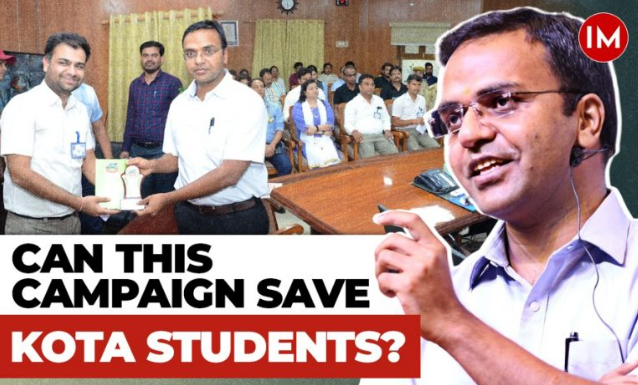
Kota, Rajasthan, a city renowned for its coaching institutes, has become a hub for students preparing for competitive exams. However, this academic pressure has also led to a tragic increase in student suicides. In response, IAS officer Dr. Ravindra Goswami, the District Magistrate of Kota, has launched a comprehensive campaign to address this crisis and save young lives.
ONE-ON-ONE WITH THOUSANDS: A PERSONAL APPROACH
Dr. Goswami has taken a hands-on approach, personally meeting with over 10,000 students to understand their struggles and provide support. This initiative is part of a broader strategy involving the administration, police, coaching centers, and hostel staff to create a safety net for students.

“Hostel staff play a crucial role in this campaign. We are giving them specialized training to recognize signs of depression in students through their body language and actions. This training, known as gatekeeper training, equips staff to intervene early and offer the necessary support,” the officer shared.
SUCCESS STORIES: LIVES SAVED THROUGH VIGILANCE AND CARE
Radhika, a hostel warden, recounts the story of a NEET aspirant from Tonk. Once a cheerful student, her demeanor changed dramatically. Radhika noticed a cut on her wrist and suspected it was self-inflicted. After a heart-to-heart conversation, the girl revealed she had attempted suicide following a fight with a friend. Immediate intervention by the hostel staff and a counselor, followed by informing her parents, saved her life.
Jyoti Jangid, another hostel warden, tells of a girl who fell into a deep depression and attempted suicide by hanging herself during a video call with a friend. Jyoti’s timely rounds and interventions prevented the tragedy. Counseling and parental involvement ensured the girl’s safety, and she continued her studies from home.
Hostel operator Jaiprakash Vyas shares the story of a boy who expressed suicidal thoughts after a minor altercation in the mess. His roommates and Jaiprakash closely monitored him, ultimately preventing him from harming himself. The boy was counseled, and his parents were informed.
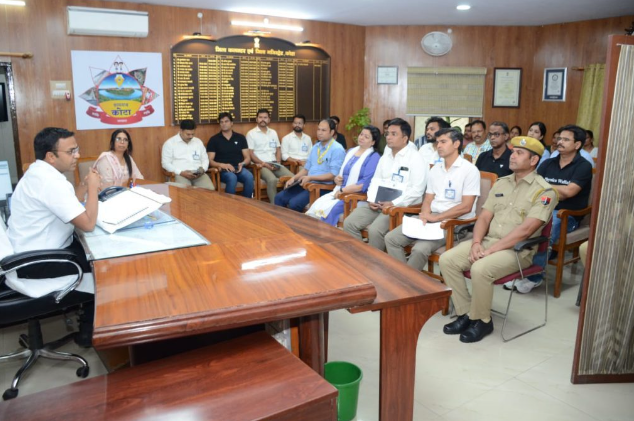
Hostel operator Mohammad Farid recounts a case where a student’s brother alerted him to a suicide attempt. Farid’s prompt action, coupled with the presence of an anti-hanging device, saved the boy. The student was counseled and sent home, relieving his academic pressures.
A father’s desperate email to Dr. Goswami, blaming him for any harm that might come to his daughter, triggered an immediate response. The police’s cyber cell traced the girl’s location, finding her in Kota despite her claims of being in Mathura. Counseling revealed she was overwhelmed by her coursework, and timely intervention helped her regain stability.
COMPREHENSIVE MEASURES: A MULTI-FACETED APPROACH
Dr. Goswami’s campaign includes several key components. The administration has set up helpline numbers and email IDs for immediate assistance. The cyber cell helps trace students in distress, ensuring timely intervention. Dr. Goswami’s personal engagement with students has built trust and provided critical support.
“The cyber cell of the police plays a pivotal role in tracing and rescuing students at risk. Once located, students receive counseling and support to address their immediate and underlying issues,” he told Indian Masterminds.
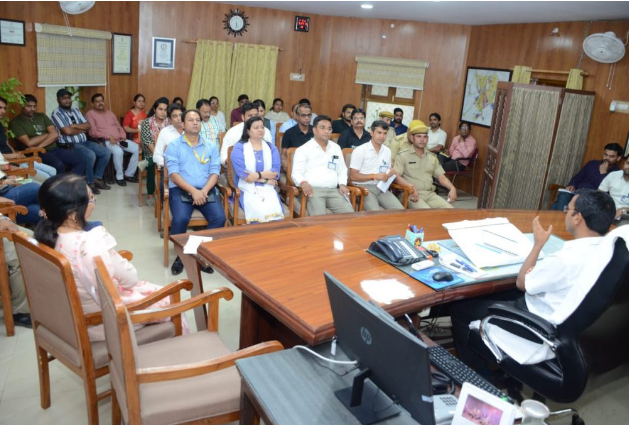
GATEKEEPER TRAINING
More than 5,000 hostel employees have been trained to detect signs of depression and intervene appropriately. This training has proved effective in preventing numerous suicides.
The officer highlights the challenges in managing over 4,000 hostels. Innovations like anti-hanging devices, CCTV surveillance, and biometric machines, along with gatekeeper training, have been critical in safeguarding students.
GATEKEEPER TRAINING EXPLAINED
Gatekeeper training, initiated in December 2023, involves:
– Questioning (Q): Identifying signs of stress and initiating conversations to understand the student’s mental state.
– Persuasion (P): Engaging with students to address their issues and provide reassurance.
– Referral (R): Directing students to professional counselors and informing their parents if necessary.
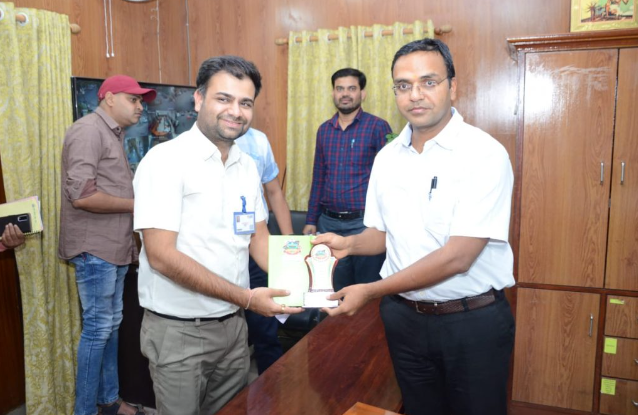
RECOGNIZING THE SIGNS: VERBAL, NON-VERBAL, AND BEHAVIORAL CLUES
Understanding the signs of suicidal tendencies is crucial. These include verbal expressions of hopelessness, non-verbal signals like negative social media posts, and behavioral changes such as isolation and lack of appetite.
“Several factors contribute to the high suicide rates, including academic pressure, physical and psychological changes, family separation, and socio-economic disparities. We try to address these issues with a holistic approach,” stated Dr. Goswami.
PREVENTING SUICIDES: THE SIX C’S STRATEGY
The officer emphasizes the importance of the Six C’s in preventing suicides:
– Confidence: Boosting students’ self-esteem.
– Character Development: Keeping students connected to family values.
– Communication: Encouraging interaction to prevent loneliness.
– Caring: Providing emotional support.
– Competence: Reducing academic pressure by exploring alternative strengths.
– Contribution: Helping students feel valued and significant.
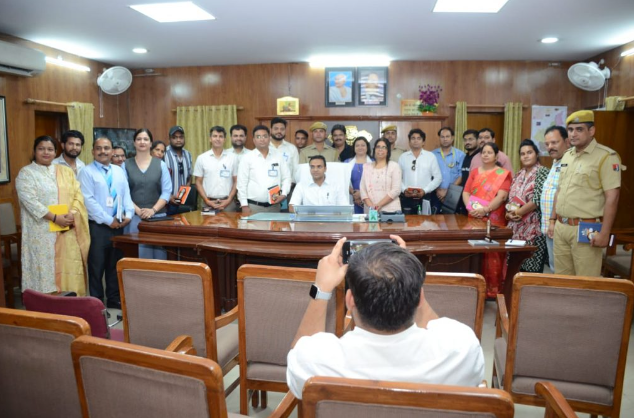
Dr. Ravindra Goswami’s tireless efforts, combined with the support of the administration, police, coaching institutes, and hostel staff, are making a tangible difference in Kota. By addressing the root causes and creating a supportive environment, this campaign aims to save lives and ensure that Kota remains a place of opportunity and hope for its students.
Article Credit: indianmasterminds